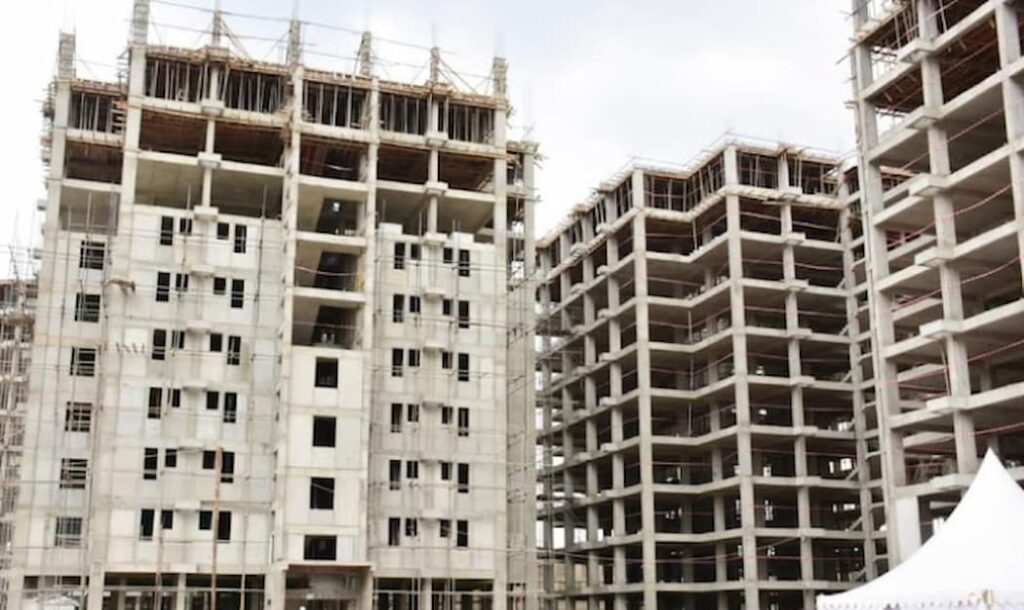Refunds from the Kenya Kwanza Gov’t Housing Levy get a blow from the court
The government filed a plea seeking a 45-day conservatory injunction addressing the Housing Levy, which was previously ruled to be illegal.

File Image of ongoing affordable houses
The government filed a plea seeking a 45-day conservatory injunction addressing the Housing Levy, which was previously ruled to be illegal. The plea was accepted by a three-judge court.
The government was given a 45-day delay by the bench, which is composed of Justices David Majanja, Christine Meoli, and Lawrence Mugambi. As a result, the conservatory orders remain in effect until January 10, 2024.
“An order of stay is hereby issued today pending the filing of a formal application for conservatory orders in the court of Appeal and these orders of stay shall remain in force until January 10, 2024,” said Justice David Majanja.
It implies that the government will maintain the money it has already gathered from the Housing Levy and carry on with the deductions.
The lawyers representing the government asked for a 45-day delay of proceedings so they could amend the Housing Levy Act through the National Assembly and restore its constitutionality.
The government threatened severe repercussions through lawyer George Murugara if the judges refused to accept their plea.
Read Also; The Social Health Insurance Fund’s implementation is suspended by a high court.
“These operations, such as the date on which the levy’s collection would effectively end, will be impacted. Does it date from the Act’s enactment or today? An onslaught of Kenyans will be approaching KRA tomorrow, demanding a refund. Due to a protocol that must be followed, they are not handed their money. Everyone in government who has to abide by this order faces a serious risk because they will face contempt charges in court, the attorney said.
“This is the reason why there must be a refund, lest there may be a refund, it cannot be tomorrow. It has to be within a given period after systems are adjusted, advice is given and appropriate measures are given. I don’t agree with the submission given that the law cannot be rectified, that we leave to Parliament. If it has its means to pass it, well and good.”
Government lawyers disputed the petitioners’ and Kenyans’ immediate demands that the government reimburse the money it had wrongfully withheld from paid Kenyans following the verdict that declared the Housing Levy invalid.
One of the Finance Act’s sections that the judges ruled was void was the Housing Levy. They stated that the levy was unreasonable and lacked a clear legal foundation and that the Finance Act 2023 amendment to Section 84 of the Finance Act, which amended the Employment Act and introduced the Housing Levy, was unconstitutional.
The levy was charged of being unjust and discriminatory since it created unequal and inequitable principles by distinguishing between the formal and informal sectors, in violation of the principles of taxes as stated in the Finance Act 2023.
“We conclude that a valid justification must be provided for the implementation of a housing levy Furthermore, we see that the government did not offer a justification for the levy’s implementation. Furthermore, it is discriminatory and hence unlawful to impose the fee only on salaried employees rather than those in informal employment, the justices concluded.


